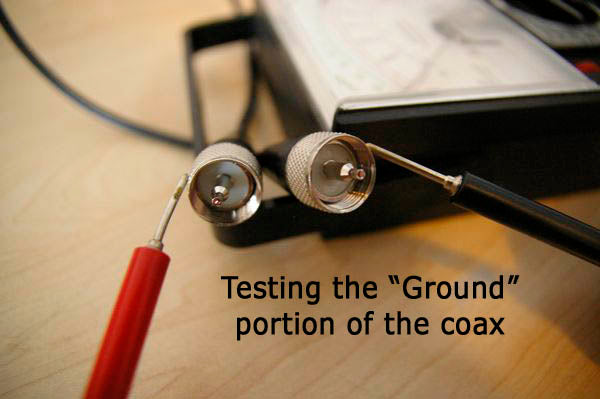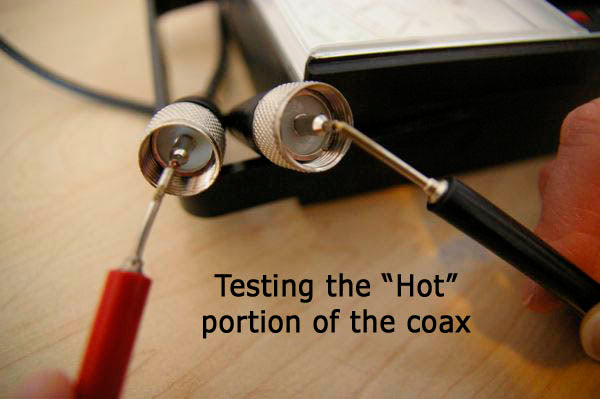Shorts in your coax cable will prevent your CB installation from working properly. While they aren't too common, it's important to make sure your coax isn't defective when troubleshooting. To test your coax for shorts, you need to be familiar with testing electrical resistance. If you're not, please refer to our guide on Understanding Electrical Resistance before reading further.
Step 1
Test the ground portion (the outside barrel) of the coax for resistance, as seen in Image 1. Make sure to touch both probes firmly to the metallic barrel. There should be no or little resistance, indicating continuity of the cable. Make sure to test both your primary coax cable as well as the jumper cable used to hook up your SWR meter when tuning your antenna. If you measure complete resistance, there is a short in the cable, and you'll need to replace it.
Image 1 - Testing Ground Continuity


Step 2
Test the inside portion (the middle pin) of the coax for resistance, as seen in Image 2. Make sure to touch both probes firmly against the center pin. There should be no or little resistance, indicating continuity of the cable. Make sure to test both your primary coax cable as well as the jumper cable used to hook up your SWR meter when tuning your antenna. If you measure complete resistance, there is a short in the cable, and you'll need to replace it.
Image 2 - Testing "Hot" Continuity


Step 3
Test for complete resistance across the ground and hot lines. To do this, touch one probe to the "hot" center pin on one side of the coax and touch the other probe to the "ground" barrel connector on the other side of the coax. There should be complete resistance, indicating that there is no continuity between the hot and ground lines. Make sure to do this for both your primary coax and the SWR meter's jumper cable. If you find continuity between the hot and ground lines of the coax, there is a short in the cable, and you'll need to replace it.






